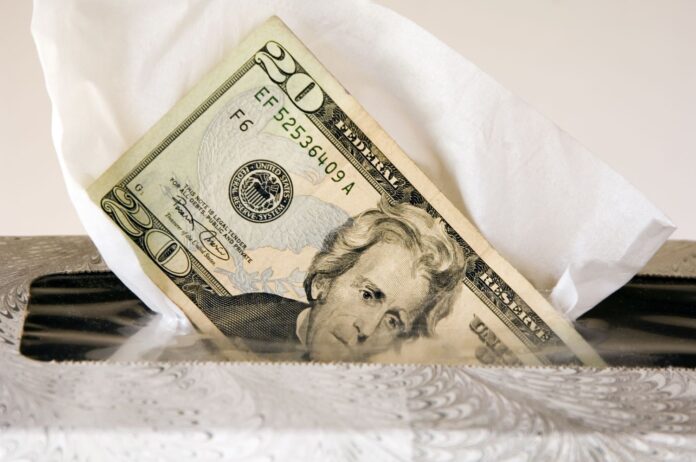Bad credit can make it hard to get a loan, but it doesn’t have to be impossible. There are steps you can take to improve your chances of getting a loan with bad credit, and there are also some alternatives to traditional loans that you can consider. With a little effort, you should be able to find a loan that meets your needs even if your credit isn’t perfect.
The Challenge of Getting a Loan with Bad Credit.
When you have bad credit, it can be difficult to get a loan from a bank or credit union. That’s because lenders are taking on more risk when they lend money to someone with bad credit. They’re more likely to worry that you won’t be able to repay the loan, so they’ll either charge you higher interest rates or decline your loan application altogether.
There are a few reasons why bad credit makes it hard to get a loan:
1) Lenders see you as a high-risk borrower. If you have bad credit, lenders will see you as a high-risk borrower. That means strategy number one should be working on improving your credit score so that you appear less of a risk to potential lenders.
2) You may only qualify for subprime loans. Subprime loans are loans that are offered to borrowers with poor credit who may not qualify for prime rate loans. These loans usually have higher interest rates and fees than prime rate loans, which make them more expensive in the long run.
3) You could end up paying more in interest and fees. Because lenders see you as a high-risk borrower, they may charge you higher interest rates and fees than someone with good credit. This means that you could end up paying more for your loan, both in terms of the monthly payments and the total amount paid over the life of the loan.
4) Your options may be limited. When you have bad credit, your options for getting a loan may be limited. Some lenders may not be willing to work with you at all, while others may only offer subprime loans with unfavorable terms. This is why it’s important to shop around and compare offers before choosing a lender.
5) You might not get approved for the amount you need . Even if you do find a lender who’s willing to work with you, your bad credit might limit how much money you can borrow. This is another reason why it’s important to improve your credit score before applying for a loan—it could help you get approved for a larger amount of money at better terms.
The Impact of Bad Credit on Loan Applications.
Bad credit can have a major impact on your ability to get a loan. Lenders will often view you as a high-risk borrower, which can lead to higher interest rates, higher fees, and even denial of your loan application altogether.
There are a few ways that bad credit can impact your loan application:
1) You may not be approved for the loan. If you have bad credit, there’s a chance that your loan application will be denied outright. This is especially true if you’re applying for a traditional bank loan, where lenders are typically more risk-averse.
2) You may only qualify for subprime loans. Even if you are approved for a loan, bad credit may limit your options to subprime loans with higher interest rates and fees. These loans can be more expensive in the long run, so it’s important to compare offers before choosing a lender.
3) You could end up paying more in interest and fees. Because lenders see you as a high-risk borrower, they may charge you higher interest rates and fees than someone with good credit. This means that you could end up paying more for your loan, both in terms of the monthly payments and the total amount paid over the life of the loan.
4) Your options may be limited . When you have bad credit, your options for getting a loan may be limited. Some lenders may not be willing to work with you at all, while others may only offer subprime loans with unfavorable terms. This is why it’s important to shop around and compare offers before choosing a lender .
5) You might not get approved for the amount you need . Even if you do find a lender who’s willing to work with you , your bad credit might limit how much money you can borrow . This is another reason why it’s important to improve your credit score before applying for a loan—it could help y ou get approved for larger amount of money at better terms .
Steps to Take If You Have Bad Credit and Need a Loan.
Bad credit can make it hard to get a loan, but there are steps you can take to improve your credit score. You can start by checking your credit report for errors and disputing them with the credit bureau. You can also try to improve your payment history by making all of your payments on time. Another way to improve your credit score is to use a credit-builder loan or a secured credit card. These products help you build up positive payment history while also keeping your balances low.
Find a Lender Who Works with Bad Credit.
Just because you have bad credit doesn’t mean you can’t get a loan. There are plenty of lenders who work with borrowers with bad credit. The key is to shop around and compare rates and terms from multiple lenders before you choose one. Be sure to read the fine print and make sure you understand all of the fees and charges associated with the loan before you sign anything.
Get a Co-Signer.
If you have bad credit, one option is to get a co-signer for your loan. A co-signer is someone who agrees to sign the loan with you and is responsible for making the payments if you default on the loan. This can be a good option if you have someone who trusts you and is willing to help you out financially. Just keep in mind that if you default on the loan, it will damage their credit as well as yours.
Alternatives to Traditional Loans.
If you have bad credit, it may be difficult to qualify for a traditional bank loan. However, there are alternative lenders who may be willing to work with you. One option is peer-to-peer (P2P) lending. With P2P lending, individuals or businesses can borrow money from other individuals or organizations without going through a traditional financial institution.
Lenders on P2P platforms typically evaluate borrowers based on factors such as credit score, employment history, and income. If you have bad credit, you may still be able to qualify for a loan from a P2P lender. However, you may end up paying a higher interest rate than someone with good credit.
Another alternative to traditional loans is personal loans from family and friends. If you have bad credit, borrowing money from someone you know may be easier than getting a loan from a bank or other financial institution. Of course, this option comes with its own risks – if you can’t repay the loan, you could damage your relationship with the person who lent you the money.
Finally, another option to consider is using a credit card. If you have bad credit, you may not be able to get a traditional bank loan, but you might still be able to get approved for a credit card. Credit cards can be used for purchases or cash advances, and they typically come with relatively high interest rates. However, if used responsibly, credit cards can help build your credit history and improve your credit score over time.
Conclusion
It’s not impossible to get a loan with bad credit, but it can be more difficult. There are a few things you can do to improve your chances of getting approved, such as working on your credit score and finding a lender who works with bad credit. There are also some alternatives to traditional loans that you could consider, such as peer-to-peer lending or personal loans from family and friends. Ultimately, the best option for you will depend on your unique financial situation.












